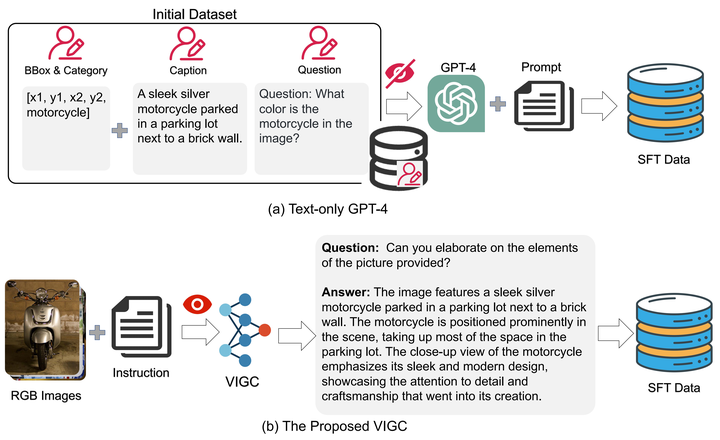 Overall framework
Overall framework
Abstract
The integration of visual encoders and large language models (LLMs) has driven recent progress in multimodal large language models (MLLMs). However, the scarcity of high-quality instruction-tuning data for vision-language tasks remains a challenge. The current leading paradigm, such as LLaVA, relies on language-only GPT-4 to generate data, which requires pre-annotated image captions and detection bounding boxes, suffering from understanding image details. A practical solution to this problem would be to utilize the available multimodal large language models (MLLMs) to generate instruction data for vision-language tasks. However, it’s worth noting that the currently accessible MLLMs are not as powerful as their LLM counterparts, as they tend to produce inadequate responses and generate false information. As a solution for addressing the current issue, this paper proposes the Visual Instruction Generation and Correction (VIGC) framework that enables multimodal large language models to generate instruction-tuning data and progressively enhance its quality on-the-fly. Specifically, Visual Instruction Generation (VIG) guides the vision-language model to generate diverse instruction-tuning data. To ensure generation quality, Visual Instruction Correction (VIC) adopts an iterative update mechanism to correct any inaccuracies in data produced by VIG, effectively reducing the risk of hallucination. Leveraging the diverse, high-quality data generated by VIGC, we finetune mainstream models and validate data quality based on various evaluations. Experimental results demonstrate that VIGC not only compensates for the shortcomings of language-only data generation methods, but also effectively enhances the benchmark performance.